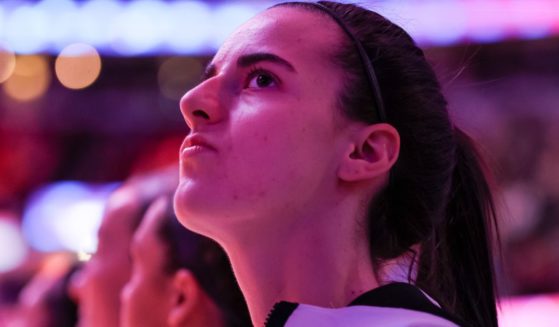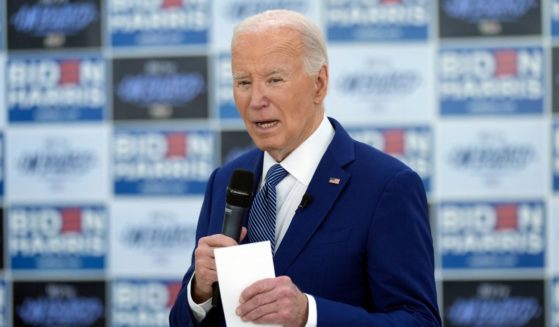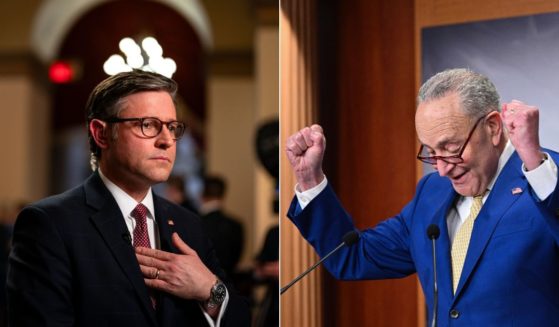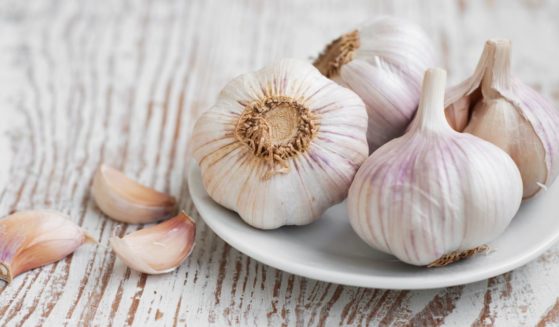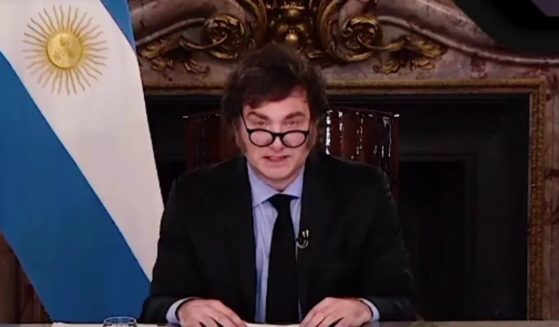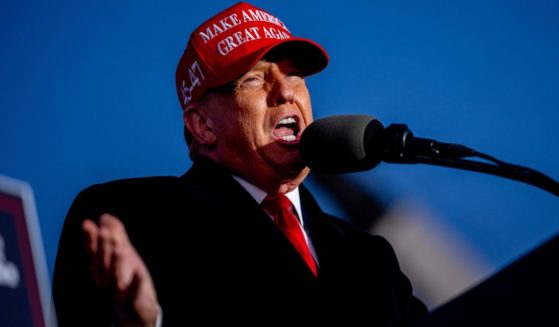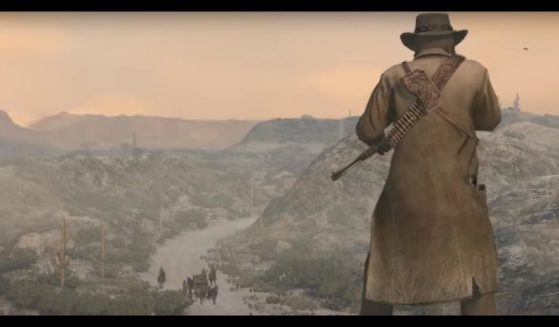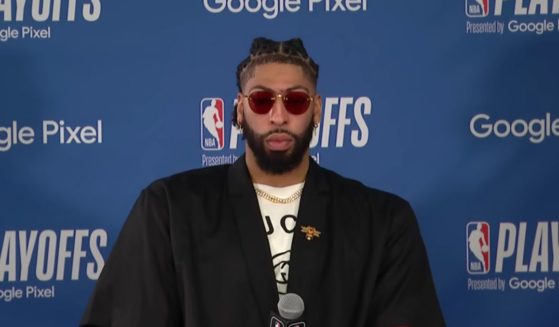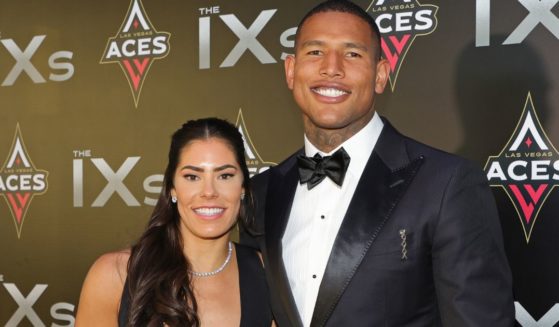Nervous DNC Superdelegates Planning To Steal Nomination from Sanders
I love this election season.
Who would have predicted, just a few months ago, that an independent socialist from Vermont would be snowplowing his way to the Democratic nomination? It’s great.
Sen. Bernie Sanders’ improbable run thus far reminds me, and so many others, of when Sen. George McGovern won the 1972 Democratic nomination despite the fact he was absolutely, completely and totally unelectable.
Sanders is well to the left of McGovern — or any major presidential candidate since Eugene Debs, really — and has a recent heart attack on his record to boot. His presentation has kind of improved, but he still looks a bit like a guy who woke up in his clothes, looked in the mirror and thought, “Eh, that’ll do.”
He’s either unwilling to explain how he’s going to pay for the immense expansion of government he’s called for or he has no idea how he’s going to do it. And he’s marching to the nomination like a column of Soviet soldiers goose-stepping through Red Square during a military parade.
This is a wonderful time to be alive for conservative political junkies, but it comes with an asterisk: No matter how unelectable Bernie looks, he could be our next president.
Thankfully (or regrettably, depending on your view), the Democratic National Committee might still be around to steal the nomination from Sanders again. No, they can’t act as a de facto arm of his opponents’ campaign like they did in 2016, but remember those superdelegates? They’re still there, and they still don’t like Bernie Sanders.
According to the stat geeks over at FiveThirtyEight, the odds-on favorite to win the Democratic nomination is … no one. They predict there’s a one in two chance no one will have enough delegates when they reach the Democratic National Convention in Milwaukee. Bernie has a one-in-three chance of having enough delegates and Joe Biden has a one-in-seven chance. No one else has a greater than one-in-100 chance of having the delegates needed to secure the nomination.
If no one has the delegates to win outright, that presents a major problem for Bernie. That’s when the superdelegates come into play. They’re notable Democratic Party personages who get to cast their ballot for whomever they please. They’re governors, members of Congress and other party leaders — an estimated 771 of them.
If a New York Times report published on Thursday is accurate, they seem to have one thing in common: They really don’t like Bernie Sanders.
“Dozens of interviews with Democratic establishment leaders this week show that they are not just worried about Mr. Sanders’s candidacy, but are also willing to risk intraparty damage to stop his nomination at the national convention in July if they get the chance,” The Times reported.
“Since Mr. Sanders’s victory in Nevada’s caucuses on Saturday, The Times has interviewed 93 party officials — all of them superdelegates, who could have a say on the nominee at the convention — and found overwhelming opposition to handing the Vermont senator the nomination if he arrived with the most delegates but fell short of a majority.
“From California to the Carolinas, and North Dakota to Ohio, the party leaders say they worry that Mr. Sanders, a democratic socialist with passionate but limited support so far, will lose to President Trump, and drag down moderate House and Senate candidates in swing states with his left-wing agenda of ‘Medicare for all’ and free four-year public college.”
This isn’t good news for Sanders. We’ve long known his weakness is his fractious relationship with the Democratic establishment. He’s technically not even a Democrat: He’s an independent senator, and for good reason. He doesn’t have a history of getting legislation passed. He caucuses with the Democrats, but it would very much be a stretch to say he works with them. He’s attacked the party establishment, particularly after the 2016 nomination process.
He may have good reason, but if you want the presidential nomination of a major party, you have to play the game. Bernie hasn’t — and if he doesn’t have enough delegates, he’s going to have to deal with people like Jay Jacobs.
“Jay Jacobs, the New York State Democratic Party chairman and a superdelegate, echoing many others interviewed, said that superdelegates should choose a nominee they believed had the best chance of defeating Mr. Trump if no candidate wins a majority of delegates during the primaries,” The Times reported.
“Mr. Sanders argued that he should become the nominee at the convention with a plurality of delegates, to reflect the will of voters, and that denying him the nomination would enrage his supporters and split the party for years to come.”
“Bernie wants to redefine the rules and just say he just needs a plurality,” Jacobs told The Times.
“I don’t think we buy that. I don’t think the mainstream of the Democratic Party buys that. If he doesn’t have a majority, it stands to reason that he may not become the nominee.”
Another Times report from Lisa Lerer found superdelegates expressing similar concerns.
“After nearly 100 interviews, I can confidently report back to you, dear readers, that in some quarters of the Democratic Party, the anxiety about Senator Bernie Sanders’s popular vote victories in the first three nominating contests is real — and rising,” Lerer wrote.
“We are talking palm-sweating, meditation-app-subscribing, yoga-retreat-scheduling levels of anxiety.
“One prominent Democrat put the ‘freakout level’ at a 12 — on a scale of one to 10. In private conversations, members of Congress used words like ‘disaster’ and said Mr. Sanders had ‘hijacked the party.’ One lawmaker described the mind-set as ‘depression mode.’ (Many of these people threw in some expletives, too.)”
And then there’s the threat that remained unmentioned from the super-est non-delegate of them all: Barack Obama.
Assuming that Sanders gets closer to the nomination, he might very likely have to deal with the intervention of the former president.
In November, Politico reported that Obama wasn’t going to get involved in the primary process, instead seeing “his role as providing guardrails to keep the process from getting too ugly and to unite the party when the nominee is clear. There is one potential exception: Back when Sanders seemed like more of a threat than he does now, Obama said privately that if Bernie were running away with the nomination, Obama would speak up to stop him. (Asked about that, a spokesperson for Obama pointed out that Obama recently said he would support and campaign for whoever the Democratic nominee is.)”
This was back when it was assumed that Sanders was in slow decline. That, uh, isn’t the case now. In January, Fox Business’ Charlie Gasparino reported that Obama was getting “increasingly anxious” about Sanders.
SCOOP: Dem Party sources who have spoken w @BarackObama say former prez is growing increasingly anxious about @BernieSanders rise in the national polls & where the avowed socialist would take the country; he is considering a public statement addressing it more now @FoxBusiness
— Charles Gasparino (@CGasparino) January 23, 2020
And then on Tuesday, CNN’s Chris Cillizza reported that “if there is a way to stop — or at least slow — Sanders, most Democratic insiders are convinced it’s this: Former President Barack Obama and former First Lady Michelle Obama get behind an alternative candidate to the Vermont senator. Not only that, but the Obamas make their endorsements soon — like pre-Super Tuesday — and they urge all of the other candidates to get out of the race ASAP.”
“Why might this work? Because the Obamas are hugely popular figures among Democrats — especially African-Americans, who would be the first building block of any candidate trying to build a coalition to beat Sanders. Obama left office in early 2017 with 6 in 10 Americans approving of the job he did as president, and those numbers have only improved since — as people forget what they didn’t like about his presidency and remember the good times.”
Of course, I don’t feel sorry for either side in this absolutely crackerjack political drama. The Democrats have long since left the days of moderate politics behind. They’re unapologetically for big government — and have been so since the beginning of the Obama years. Well, why not nominate a guy who wants the biggest government ever?
As for Sanders, he’s had his middle finger in the air at the Democratic establishment for decades. Now, as he leads the field but has to deal with the very real prospect of not having enough delegates to win the nomination, he’s demanding that the establishment accept a plurality and co-sign for a Cuba-praising socialist as their presidential nominee. Nice try. Say what you will about establishment politicians; their desire to maintain a hold on power means they’re not about to throw it all away for a ticket on the crazy train.
So, who would be the nominee? The Times suggested it could be Ohio Sen. Sherrod Brown, who opted not to run this time around but who party officials believe “can emerge as a white knight nominee at a brokered convention — in part on the theory that he may carry his home state in a general election.”
“If you could get to a convention and pick Sherrod Brown, that would be wonderful, but that’s more like a novel,” Rep. Steve Cohen of Tennessee told The Times. “Donald Trump’s presidency is like a horror story, so if you can have a horror story you might as well have a novel.”
Shame, really. It’s been a fun ride. I’m sad it could be shut down because there’s almost no chance Sanders could beat Trump in November. On the other hand, “almost no chance” still means there’s a chance — and you begin to understand why the DNC is willing to fracture party unity to steal the nomination from Sanders, a man who makes George McGovern look like Jeb Bush.
Truth and Accuracy
We are committed to truth and accuracy in all of our journalism. Read our editorial standards.

